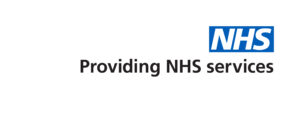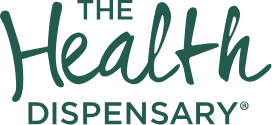Teething
Teething Support in Neath – Free NHS Advice & Treatment
Our teething advice service in Neath offers expert guidance and gentle support through the NHS Common Ailments Service. If your baby is unsettled, dribbling more than usual, or showing signs of sore gums, our pharmacists are here to help with trusted advice and, if eligible, free NHS treatment for babies over 3 months old.
Book online or visit our pharmacy.
What Is Teething?
Teething occurs when your baby’s teeth begin to emerge through their gums — typically between 4 and 12 months of age. By around 2–3 years old, most children have a full set of baby teeth.
While teething is a normal part of development, it can cause discomfort just before each tooth appears.
Common signs include:
- Sore or swollen gums
- Increased dribbling
- Flushed cheeks or red face
- More biting, chewing, or sucking
- Mildly raised temperature (not over 38°C)
- Irritability or difficulty sleeping
- Rubbing ears or face
- Reduced appetite
How We Can Help
Our pharmacists can provide reassurance and help you choose the right support for your baby.
If your child is over 3 months and self-care isn’t helping, we may recommend:
- Sugar-free infant paracetamol for pain or mild fever
- Sugar-free infant ibuprofen for additional relief if appropriate
We’ll guide you on safe dosing, when to use medicine, and when further help might be needed.
Gentle Home Remedies
You can ease teething discomfort with simple, soothing techniques:
- Rub your baby’s gums gently with a clean finger
- Offer a clean, cool (not frozen) teething ring or damp flannel
- Try chilled soft fruit or veg like cucumber or banana (for weaned babies)
- Give cool, sugar-free drinks to soothe gums
- Comfort and distract with cuddles, singing, or play
- Wipe away drool regularly to prevent skin rashes
Toothcare Tips
Start good dental habits early to protect your baby’s smile:
- Begin brushing as soon as the first tooth appears
- Use a smear of fluoride toothpaste for babies under 3, and a pea-sized amount from age 3+
- Take your baby to the dentist by 6 months or when their first tooth appears
When to Get More Help
Teething symptoms are usually mild and short-lived, but seek medical advice if your child:
- Has a high fever (above 38°C)
- Develops diarrhoea or other unusual symptoms
- Seems very unwell, distressed, or lethargic
- Has symptoms that persist or worsen despite care
What to Avoid
To keep your baby safe, avoid:
- Teething gels containing local anaesthetics unless advised by a pharmacist
- Adult gels or any containing salicylates (risk of Reye’s syndrome)
- Herbal or homeopathic remedies — these are not proven to help and are not recommended
Book an Appointment
Our pharmacist teething support service in Neath is gentle, family-focused, and free under the NHS Common Ailments Scheme for eligible babies. Get trusted help and practical advice without the wait.
Book Online or visit us in-store for same-day support.

FAQs – Teething & Baby Care
When do babies start teething?
Most babies begin teething between 4–6 months, though some start earlier or later.
Can teething cause a high fever?
No — teething can cause a slight temperature rise, but a fever over 38°C is usually due to another cause and should be checked by a GP.
What pain relief can I give my baby?
If your baby is over 3 months, our pharmacists can advise on the safe use of sugar-free paracetamol or ibuprofen.
Should I see a dentist during teething?
Yes — it’s a great time to introduce your child to dental care. We recommend visiting a dentist by the time the first tooth appears.
Explore related services:
Common Ailments Service |
Book Online
Written by Ali Sparkes BSc (Hons), MSc Econ, IP, FRPharmS – Independent Prescribing Pharmacist

